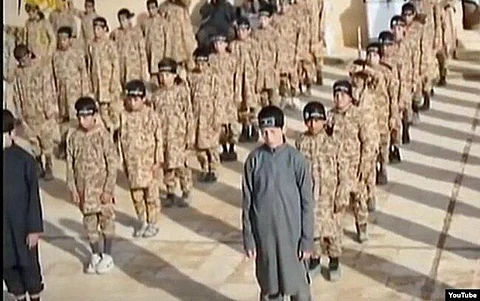
- Home
- NewsGram USA
- India
- न्यूजग्राम
- World
- Politics
- Opinion
- Entertainment
- On Ground
- Culture
- Lifestyle
- Economy
- Sports
- Sp. Coverage
- Misc.
- NewsGram Exclusive
- Jobs / Internships
- Interview

Dhaka, July 9, 2017: Nearly 150 Bangladeshis were victims of forced disappearances at the hands of police since the start of 2016, Human Rights Watch alleged in a new report published on Thursday, adding that some were tortured or mistreated while in secret custody.
The New York-based rights watchdog said it had documented at least 320 such cases in Bangladesh since 2009 when the Awami League took power amid a promise of adopting a zero-tolerance policy toward human rights violations.
"The disappearances are well-documented and reported, yet the government persists in this abhorrent practice with no regard for the rule of law," Human Rights Watch (HRW) Asia Director Brad Adams said in a news release accompanying the 82-page report, titled "'We Don't Have Him': Secret Detentions and Enforced Disappearances in Bangladesh."
At least 90 people were victims of secret detentions in 2016 and another 48 were reported in the first five months of 2017, according to Human Rights Watch.
"Bangladesh security forces appear to have a free hand in detaining people, deciding on their guilt or innocence, and determining their punishment, including whether they have the right to be alive," Adams said.
Bangladesh Home Minister Asaduzzaman Khan Kamal refuted the report's findings.
"The HRW operated a negative campaign (against us) during the trials of war criminals. This new report is a part of that campaign," he told reporters on Thursday.
HRW released its reports a few days after a prominent government critic, who was said to be missing following reports that he had been abducted, was found alive hours later. Police said they located Farhad Mazhar about 200 km (120 miles) from his home in Dhaka, about 18 hours after he was reported missing.
'Police don't violate the law'
In documenting cases of forced disappearance, HRW said it based its report on interviews with more than 100 people, including victims' relatives and witnesses. The watchdog blamed the Bangladeshi police's Rapid Action Battalion (RAB) and detective branch (DB) for many of the abductions.
Police officials who spoke to BenarNews challenged the complaints against RAB and DB.
"Sometimes criminals use our name for kidnapping people. If someone identifies himself as law enforcement agency personnel, it should be challenged and the victim should contact us immediately," said Mufti Mahmud Khan, the director of RAB's legal and media wing.
"As a law enforcement agency, police don't violate the law," Dhaka Metropolitan Police spokesman Masdur Rahman said.
Not all abductees have been freed, according to the report. Many are still in custody while others have died in secret detention, with as many as 50 being killed over the years, HRW said.
"[T]here is an alarming trend of deaths occurring in secret detention of state authorities. In one such case, on June 13, 2016, Shahid Al Mahmud, a student activist of the Jamaat-e-Islami party, was 'dragged outside [his house] and taken into a black microbus,' his father, Rajab Ali, told Human Rights Watch. Rajab Ali said that police officers were present during the arrest, although they later denied they were holding his son," HRW said.
"Two weeks later, on July 1, police said they found Shahid's body after a gunfight with criminals. Shahid's father told Human Rights Watch that the police are lying: 'The police abducted my son and staged a gunfight drama to justify the killing.'"
A senior lawyer at Supreme told BenarNews that he had not read the report but was familiar with its allegations.
"The volume of missing, disappearances, murders and kidnappings we are hearing about is alarming. In order to bring the confidence back to the law enforcement agencies, each of these cases should be investigated, because the law enforcement agencies are directly being accused for these crimes," Shahdeen Malik said.
Recommendations
A key recommendation from the report is to invite the U.N. Office of the High Commissioner for Human Rights, as well as the Working Group on Enforced or Involuntary Disappearances and other relevant organizations, to visit Bangladesh to "investigate and make appropriate recommendations to ensure justice and accountability."
The report calls for the government to investigate allegations of deaths in "so-called crossfire or gunfights after they were already in security force custody," and to comply with the law that all detained people must appear in court within 24 hours.
HRW also recommends that the government promptly investigate existing allegations of enforced disappearances, locate and release those held by security forces and prosecute the perpetrators.
Home Minister Khan said police have always presented suspects before a judge within 24 hours of their arrests. "There are examples of taking law enforcement agency personnel to justice if found involved in crime," he said, responding to HRW's recommendations.
But a former chairman of the National Human Rights Commission said each complaint should be investigated.
"Ensuring citizens' security is the main responsibility of the state," Mizanur Rahman told BenarNews. "Citizens lose their confidence in law enforcement agencies if they don't get any information about a missing person after filing a case." (Benar News)
